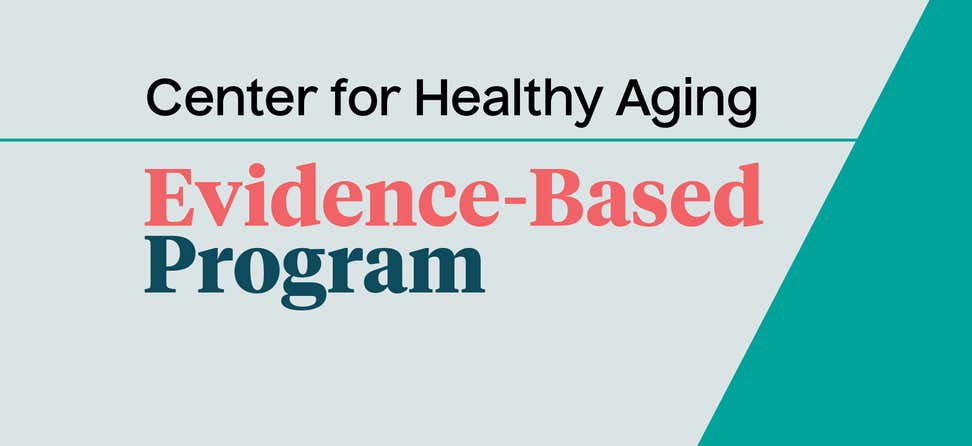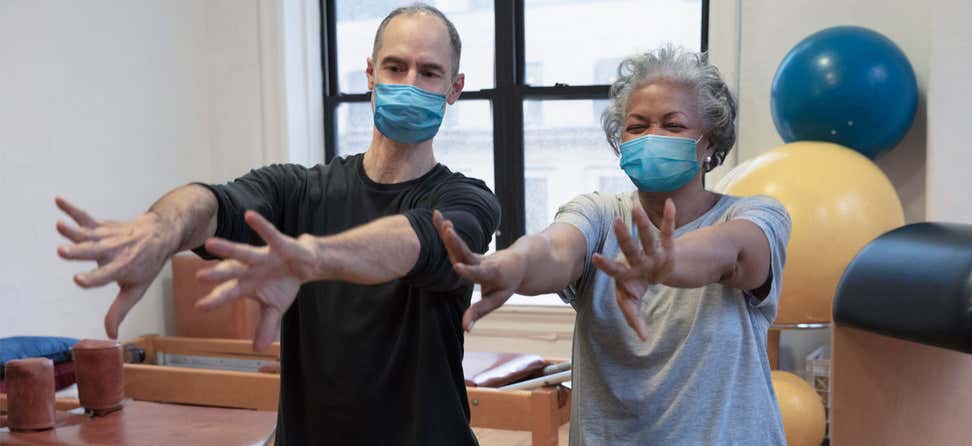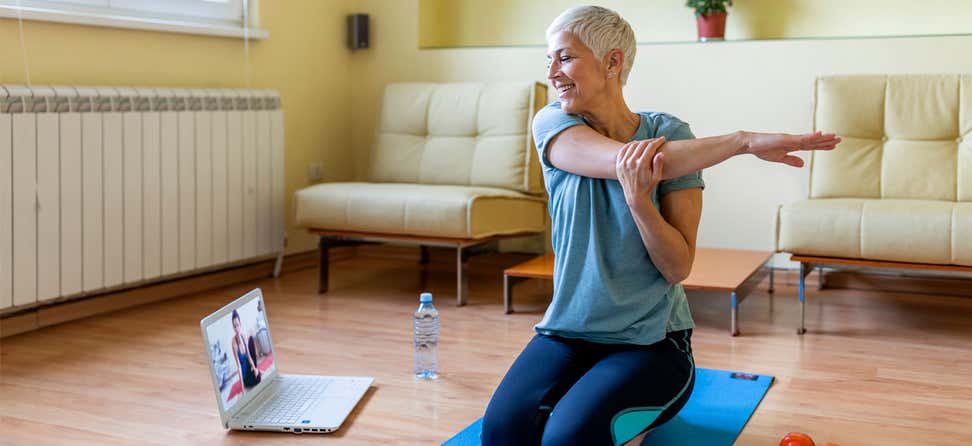Key Takeaways
Help frail older adults gain increased balance and strength through exercise and a walking program three times a week.
Studies demonstrate that Otago Exercise Program (OEP) participants experience a 35 - 40% reduction in falls.
The Otago Exercise Program (OEP) consists of 17 strength and balance exercises and a walking program, performed three times a week by the older adult in the home, outpatient, or community setting. Exercises can be done individually or in a group setting. Studies demonstrate that OEP participants experience a 35 - 40% reduction in falls. The program is most effective for frail older adults. It is recommended for frail older adults that a Physical Therapist (PT) assess and prescribe the initial exercises. The older adult does the exercises independently three times a week and completes a series of 4 visits with the PT, PT Assistant, or the appropriate provider over an 8-week period, and then transitions to a self-management phase for 4 – 10 months. During the self-management phase, the older adult continues to independently do the exercises, and has the opportunity to check in with their program provider via monthly phone calls, and an optional face to face check in at 6 months. There are opportunities for Physical Therapists to collaborate with community providers to support dissemination and implementation of the OEP.
Additional topic includes strength and balance exercises.
Note: Track health promotion program guidance during COVID-19 regularly for updates to program implementation and training options. Programs traditionally implemented in-person may be temporarily allowable by telephone or online.
- Target audience: Older adults who have experienced one or more falls, older adults who are more frail or with complex medical conditions, older adults who do not have the strength or endurance to participate in tai chi or an exercise class, or older adults who do not have access to transportation to participate in a community class.
- Health outcomes:
- 35% reduction in falls in high-risk older adults
- Improvements in functional performance measures
- Improvements in perceived abilities
- Delivered by: Physical therapist, occupational therapist. Physical therapy Assistant, physical therapy aides, certified fitness instructors, and other appropriate providers can support adherence and compliance.
- Program type: Individual for exercise prescription, doing the exercises can be done in a group format, online via zoom classes, or other appropriate setting
- Format: In-person at home, in-person in community, online
- Length: 1-5 individual sessions, up to one year for self-management
- Training: Online, in-person
- Professional required: Yes, physical therapist should be available to do initial assessment with frail older adults. Physical therapists can also provide consultation on exercise prescription.
- Accessibility adaptations available: No
- Cultural adaptations available: No
- Available in languages other than English: Spanish
- Topic(s):
- Falls Prevention
- Additional Resources:









